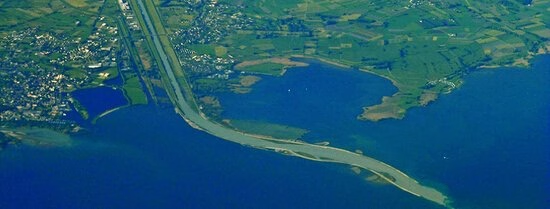Prof. Hein Klemann and dr. Ben Wubs
The development of the German Ruhr area into the most important industrial centre of Europe since the 1870s, would have been impossible without the Rhine, just as the development of Rotterdam (and the surrounding towns) as the most important deep sea port of Europe. These areas developed into a European cross-border centre of economic activity without a rival.
The Rhine, however, crossed borders of several states, with various national institutions and conflicting interests, which was a source of co-operation as well as conflict. By viewing regional development as a historical process, considerable leeway is also opened up for the application of two key concepts from evolutionary economics, i.e. path dependence and adaptation. Economic choices are always to some extent depended on past institutional and technological developments and it is even so that historical decisions have major influence on decisions now and in the future. Regional economies inherit past developments with negative as well as positive effects. On the other hand, a region’s lasting success depends on its adaptive capability: i.e. the capacity of firms, clusters, and state institutions to adapt to new market, technological and organizational opportunities.
Transnational Rhine Conferences
In order to realise a research program on these and related issues, the organisers of this historical Rhine conference endeavour to build a transnational network of economic and business historians, as well as historians of technology, in the first place from the countries along the Rhine and its delta, i.e. Switzerland, Germany, France, Belgium and the Netherlands. On 14, 15 and 16 April, the 6th Transnational Rhine Conference took place, entitled 'Rivers and Innovation in International Comparative Perspective'. For the programme, a list of speakers and the summary of the conference click here.
The Transnational Rhine Conferences explore the different aspects of long-term economic development of the Rhine clusters and focus on two main actors in the Rhine economy, i.e. (trans)national firms and governments. It hypothesises that both firms and markets are engaged with political institutions in a mutually dependent relationship. As a consequence, companies with important economic relations across the borders were interested in peaceful relations and open borders. Nevertheless, firms also had to support national targets, which could result in conflicts with the states and with their international interests.
Central questions are:
- How and why did the Rhine economy became one of the most competitive economic regions in the world?
- What were the consequences of this long-lasting successful economic development for the political relations between the diverse Rhine States?
- How did cross-border economic relations influence the economic development within the diverse countries?
- What were the effects of shattered political surrounding for the development of firms and groups of firms?
The aim the conferences is to explore different aspects of long-term economic development of the Rhine clusters which will be looked into from five different perspectives, i.e. geographical, macro-economical, institutional, business historical, and technological. Although these perspectives sometimes overlap it is useful to analyse the Rhine economy from these different points of view, dependent on different academic fields. The organisers, based at the Erasmus University of Rotterdam and Goethe University in Frankfurt, aim to bring together scholars from various disciplines and make it a genuine multidisciplinary venture.
Program Committee
Dr. Ralf Banken (Goethe University Frankfurt am Main)
Prof. Werner Plumpe (Goethe University Frankfurt am Main)
Prof. Hein. A.M. Klemann (Erasmus University Rotterdam)
Dr. Ben Wubs (Erasmus University Rotterdam)
